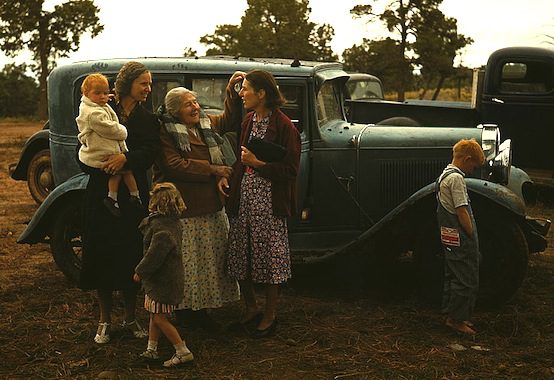Fighting Income Inequality With Friendship

Richard Beck wrote Tuesday on friendship at his blog, Experimental Theology, arguing that “weak ties” are important to our world. He tells of a world in which individualism led to separate economic, cultural, and social worlds. Our deemphasis of friendship and its goods has created a society in which stratification erodes diverse flourishing:
In generations past the community was your insurance policy should anything traumatic happen to you. From a family death to the loss of a crop to a barn burning down. People and family would rally around you, supporting you through a difficult time.
But these cultural supports have largely vanished. For both rich and poor. The only difference is that the rich can purchase a safety net. They can buy homes and insurance. They can have investments and savings accounts. They can move to another city and another job.
So to be clear, I don’t want to lament a decline in cultural and family values and then put that decline solely on the poor. The decline cuts across socioeconomic status. It’s just that the rich have been able to insulate themselves from the historic erosion of familial and social mutuality. The rich can be self-sufficient. Thus, the social decline in America has fallen hardest on the poor.
Beck emphasizes the fact that “weak ties” in friendship are very needed. Why? Because our closest friends are usually insular groups, “bundles of sameness.” Weak ties—distant relatives, acquaintances from our neighborhood or past—are usually more diverse in their background, tastes, and employment. This wider “social web” gives us philanthropic ammunition: when you see someone in need, you don’t just bring your own talents and gifts to the table. You bring everyone you’ve ever met—”Bluntly, you might not be able to help this person in a particular situation but you might know someone else who can. In sacramental friendships you are bringing the gift of your weak ties.”
This blog post is quite timely, published during profuse talk of income inequality and its possible ties to the “decline of the family.” The emphasis on marriage as solution to income inequality has been articulated clearly and often in conservative discussion. And while this argument may have a lot of truth to it, it also may feel over-simplifying and unjust to many single parents out there. Not every single mom can or should get a husband. Not every young person ought to get married straight out of high school, or college, or grad school. Specifics matter: we cannot ascribe the entirety of our inequality problem to one cause or dilemma. And neither can we fix the problem via one set, specific solution.
Additionally, Beck is right in pointing to the role that private association has traditionally played in the realm of welfare and philanthropy. It is true that social stratification has decreased the impact that some private associations have: churches, specifically, are often isolated by their zip codes from true diversity. Voluntary civil society has never been perfect, nor has it completely provided for the needs of the American people—but it still is one of the most personable, specific, and conscious threads of philanthropy at our disposal. The government can’t fix its eye on every poverty-stricken household, to know all its particulars, needs, and weaknesses. But a neighbor down the road, friend from church, third cousin, or friend from high school can, and they can extend help in a way that the government (or even a large non-profit organization) cannot.
Beck’s friendships of “weak ties” provide a hidden and important ingredient in the inequality discussion. Friendship is a diverse and beautiful thing—it’s a proactive, personal, and private solvent to a very large and public problem. It deals with the dilemma on a case-by-case basis. It reaches out via the various spheres and circles open to the people in question. Granted, it’s not a solid, comprehensive, quantifiable solution to inequality. But it is an important, and oft-ignored, piece in the giant solution puzzle.
The income inequality debate often demonstrates conservatives’ willingness to promote a good principle without taking into account the composite, complex whole: while we do believe in the importance of the family, we shouldn’t uplift it without a needed nod to pains and pressures of other people’s lives. Phileo, brotherly love, offers a proactive solution—one that doesn’t merely chastise the unmarried and family-less—but instead, provides a “family” that transcends blood ties, income barriers, and ideological backgrounds.